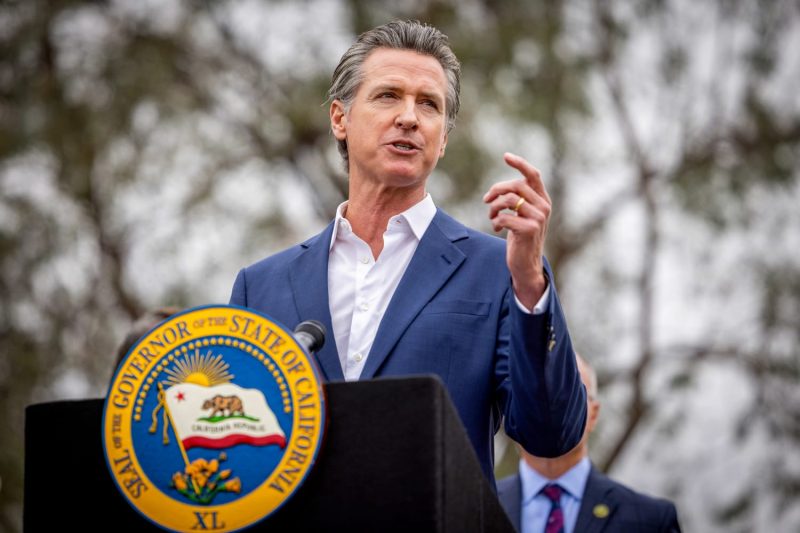Governor Gavin Newsom of California, an ardent supporter of renewable energy and progressive environmental measures, said he will directly counter any significant steps by the Trump administration to abolish tax credits for electric vehicles (EVs). During a recent interview, Newsom stated his readiness to provide residents with rebates to offset any changes in federal tax policy. This move underscores the ongoing tension between California and the Trump Administration over environmental issues, signaling the state’s commitment to climate change issues and clean energy.
The controversy over EV tax credits began immediately after President Donald Trump proposed abolishing these benefits. These tax credits, introduced under the Obama administration, were designed to incentivize the purchase of electric vehicles by reducing their overall cost. Currently, consumers can earn federal tax credits up to $7,500 on their purchase of a new EV. However, the Trump administration’s proposal to eliminate these credits has raised concerns about the potential derailment of the electric vehicle market’s growth.
Gov. Newsom’s response to the proposal suggests his administration will not be dissuaded from its objective of promoting electric vehicles and renewable energy. Should federal tax credits be taken away, Newsom has proposed providing financial rebates to California residents who purchase electric vehicles. This is a further push towards the state’s ambitious target of putting five million zero-emission vehicles on the streets by 2030.
To achieve this goal, California has been implementing various strategies for several years. Apart from encouraging individuals to adopt EVs, the state has also been looking at ways to drastically increase the number of charging points for such vehicles. If the EV tax credit were to be removed, Gov. Newsom’s proposed rebates would add a new dimension to these efforts by ensuring that buying EVs remains an attractive choice for citizens.
However, Newsom’s proposed resident rebates are not just a response to the Trump administration challenge but also a reflection of California’s progressive stance towards combating climate change. California has long been a leading state in reducing greenhouse gas emissions and moving toward a more sustainable, green economy. Its pioneering policies on renewable energy, waste management, and zero-emission vehicles are seen as a model for other states and countries.
The proposal is also reflective of the state’s broader strategy of harnessing the economic potential of the clean energy sector. Encouraging the purchase of electric vehicles would boost the state’s EV manufacturing sector, which includes companies like Tesla, Proterra, and BYD. For these reasons, the proposal has gained support from not only environmentalists but also industry groups and businesses focused on renewable energy and zero-emissions vehicles.
At a deeper level, Gov. Newsom’s pronouncement signifies a larger, more systemic contestation around issues of climate change, renewable energy, and the place of fossil fuels in American life. It shows that despite political roadblocks at the federal level, individual states like California can continue to take bold initiatives to advance the cause of sustainability and cleaner energy.
In summary, Governor Newsom’s pledge to provide residents with rebates if the federal EV tax credit is removed is not just a reaction to immediate policy threats, but a signal of California’s enduring commitment to a green and renewable-energy fuelled future. Aside from its potential to counterbalance federal policy changes, it clearly demonstrates the continuing role of states as independent actors in the fight against climate change, contributing to a growth in the renewable energy sector and enhancing the overall sustainability of the American society.




